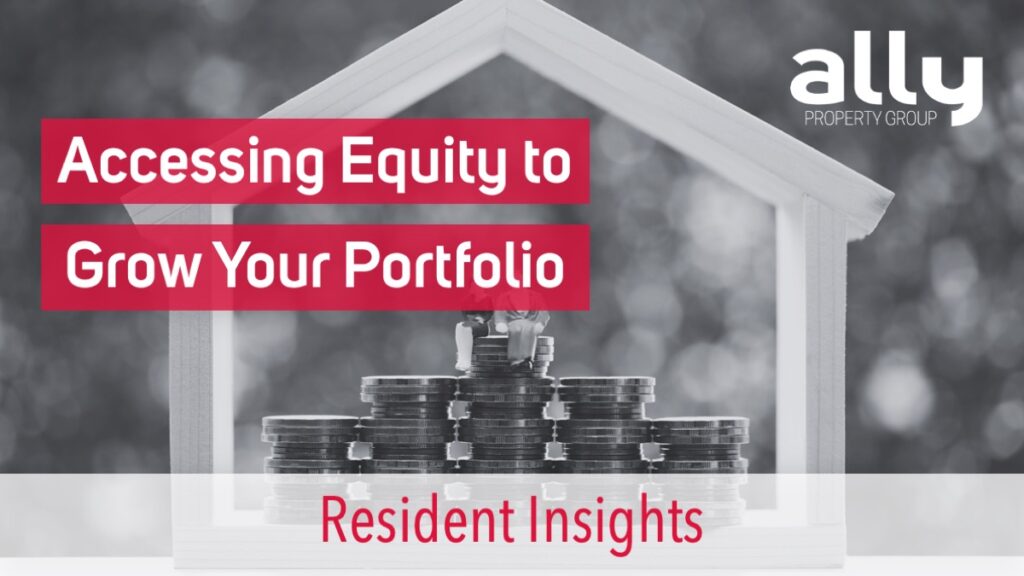8 Essential Tips for First-Time Property Investors in Australia
As you embark on your journey into property investment in Australia, it's crucial to arm yourself with current and relevant information. The real estate market, especially in 2023 and as we head into 2024 presents unique challenges and opportunities. Whether you're living in Australia or an expat looking to invest back home, understanding the intricacies of the market is key to making informed decisions.
In this blog post, we’re sharing 8 key tips and insights for first-time property investors in the Australian property market.
1. Understanding the Market
2023 has been a dynamic year for the Australian property market. After the pandemic, we've seen a significant shift in property values across the nation. Currently, we're experiencing a rental crisis characterised by historically low vacancy rates and rising rents. This situation is crucial for you to understand as it impacts both the value of potential investments and your strategies as a landlord.
In major cities like Sydney, Melbourne, and Brisbane, asking prices for houses and units have shown varying trends. For instance, as of December 2023, Sydney's asking prices for houses have increased by 11.6% year-on-year, while Melbourne's house prices have seen a more modest increase of 4.2%. This data indicates a strong demand and could influence your decisions on where to invest. It’s important not just to review the annualised data, but to understand the starting point, annualised trends over the past decade, and key data to guide and inform your outlook.
Additionally, the property market's recovery phase post-pandemic has shown resilience against predictions of a crash. Despite fears of a 'fixed interest rate cliff' potentially causing widespread distress, the market has remained stable, with distressed listings decreasing across major cities. This resilience suggests that the Australian property market may be a safer investment than some pundits have predicted.
2. Setting Clear Investment Goals
Before diving into the market, it's important to set clear investment goals. Are you looking for short-term gains through property flipping, or are you in it for the long haul, aiming for rental income and capital appreciation? Your strategy will significantly influence the type of properties you look for and the locations you consider.
Your investment goals should also take into account the current market trends. For instance, with the rise in remote working, properties that cater to home offices might be more in demand. Additionally, considering the current low vacancy rates, investing in rental properties could be particularly lucrative.
Moreover, as an expat, your goals might be different. You might be looking at investing in property as a way to maintain a connection with Australia, or as part of a broader investment strategy. In this case, understanding the market from afar and perhaps leveraging professional help becomes even more crucial.
3. Budgeting and Finance Management
In the current economic climate, with interest rates rising, budgeting and finance management have become more important than ever. The Reserve Bank of Australia's cash rate has seen increases throughout 2023, impacting borrowing costs and, by extension, the property market. This tightening of credit availability means you need to be extra cautious with your budgeting, ensuring you have a robust financial plan in place.
When planning your budget, consider not just the purchase price of the property, but also ongoing costs such as maintenance, property management fees, and potential vacancy periods. It's also wise to have a buffer for unexpected expenses or changes in the market.
For expats, there may be additional financial considerations, such as exchange rate fluctuations and international transfer fees. It's important to factor these into your budgeting to avoid any surprises down the line.
4. Choosing the Right Location
Location is a critical factor in property investment. Areas with strong population growth are often good choices for investment, which is particularly evident with Australia’s record high immigration levels at present. The buoyant resources sector in Perth also makes it an attractive option. As an investor, you should look for locations that not only promise good capital growth but also align with your investment goals and tenant demographic.
In choosing a location, it's also important to consider the local economy, employment rates, and infrastructure development. A region with a growing economy and infrastructure development can be a good indicator of potential property value increases.
For expats, choosing a location might also involve considering places you are familiar with or have a connection to. This can provide an additional level of comfort and confidence in your investment decision.
5. Property Type and Target Tenants
Choosing the right type of property is as important as choosing the right location. For instance, if your target tenants are families, investing in a spacious house close to schools and parks might be a good strategy. Conversely, if you're targeting young professionals, a modern unit close to the city centre or transportation hubs might be more appropriate.
The recent shift to hybrid working arrangements has also fuelled demand for units and townhouses, especially those that cater to the needs of people working from home. This trend is something to consider, particularly in urban areas. When considering property types, also factor in the maintenance requirements and potential rental yields. Apartments might offer lower maintenance but also potentially lower rental yields compared to houses.
For Australian expats, understanding the local tenant market can be challenging. In this case, seeking advice from local property experts or conducting thorough online research can be invaluable in making an informed decision.
6. Legalities and Compliance
Understanding the legal aspects of property investment in Australia is vital. This includes knowing your rights and responsibilities as a landlord, the tax implications of your investment, and any state-specific laws that might apply. For Australian expats, it's also important to be aware of any additional legalities that might affect your investment, such as foreign investment regulations.
Staying abreast of changes in property laws, such as those related to tenant rights, safety regulations, and fair housing practices, is crucial. Also, consider the tax implications, including income tax on rental earnings and capital gains tax when you sell the property. It's often beneficial to consult with a tax advisor who has experience with property investment.
For expats, navigating these legal complexities might require extra effort. Engaging with a local legal advisor who understands both the Australian property market and the specific challenges faced by expats can be a wise move.
7. Property Management
Deciding whether to manage the property yourself or hire a property manager is a significant decision. Property management involves finding and managing tenants, maintaining the property, and dealing with any issues that arise. If you're an expat or don't have the time to manage the property yourself, hiring a professional might be a wise choice.
A good property manager can take care of all aspects of managing your rental property, from finding and vetting tenants to handling maintenance issues and ensuring compliance with legal requirements. They can also provide invaluable local market insights and advice.
However, this comes with additional costs, which you need to factor into your budget. Weigh the potential benefits against the costs to decide if hiring a property manager is the right choice for your investment strategy.
8. Long-term Strategies and Exit Plans
Having a long-term strategy is crucial in property investment. This involves planning for how you'll grow and eventually exit your investment. Understanding the market cycles and planning your investments accordingly can lead to better outcomes. For instance, the current market recovery phase, characterised by a combination of headwinds and tailwinds, suggests that now might be a good time to invest, with an eye on medium to long-term growth.
As part of your long-term strategy, consider diversifying your portfolio. This could involve investing in different types of properties or in different geographical locations. Diversification can help mitigate risks associated with any single market or property type.
When it comes to exit strategies, it's important to have a plan for when and how you'll sell your investments. This could be influenced by a variety of factors, including market conditions, your personal financial goals, and changes in your life circumstances. Having a clear exit strategy can help ensure that you maximise your returns when it's time to sell.
Conclusion
Investing in the Australian property market in 2023 and 2024 requires a nuanced understanding of the current economic landscape, legal requirements, and market trends. By following these tips and staying informed, you can make strategic decisions that maximise your investment potential. Remember, property investment is a journey, and success often comes to those who are patient, diligent, and well-informed.
Embark on your property investment journey with Ally Property Group, your trusted ally in Australia's real estate market. Our expert advisers are dedicated to crafting personalised investment strategies for Australian expats and residents alike, aiming to enhance your portfolio and maximise returns. Start building your wealth with Ally Property Group, where strategic insights, analysis and modelling leads to prosperous investments.
We’re more than just property advisers. As Australian expats ourselves, we've navigated the intricate world of property investment both at home and abroad. With a legacy rooted in financial services, we offer a holistic, transparent, and strategic approach, ensuring you're equipped with the knowledge and confidence to make informed decisions.
Book an obligation-free, complimentary consultation here today.
General Information Warning: The information contained herein is of a general nature only and does not constitute in any way, personal advice. You should not act on any recommendation without considering your personal needs, circumstances, and objectives. We recommend you obtain professional property investment advice specific to your circumstances.
Pay it forward! Share this article with your friends and network.



